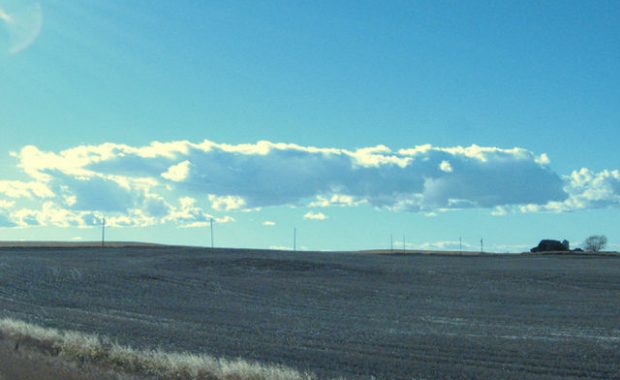RENFREW COUNTY – Warm temperatures and endless days without a cloud in the sky are great for cottagers and recreational enthusiasts, but these perfect summer conditions spell a crisis for local farmers.
Dave Mackay, president of the Renfrew County National Farmers Union, is hoping a meeting with Conservative MP Cheryl Gallant, and a tour of area farms early this week, will result in support from the federal government.
He says Renfrew County is one of the hardest hit in the province along with Lanark, Hastings and Ottawa Carleton Counties.
“The drought situation is serious to the point of very critical, with no relief in the long-term weather forecast,” he states.
“Lack of rain, very hot days and spurts of gusting winds have played havoc with crops including corn, soybeans, hemp, small grains and hay. In addition, farmers are experiencing very dry pastures with beef farmers having to resort to feeding hay and it only being the middle of July,” the local sheep farmer says.
“Today I put out three bales of hay for the sheep at a cost of $40 a bale. That`s $3,600 in a month. Not long before I’m taking a loss,” he explains.
In addition to feed supplies being affected, wells and watering holes are going dry, causing farmers to seek water from other sources.
Mackay’s family has been farming in the area since 1834 when his ancestors arrived from Ireland. He hasn’t seen anything like this since 1965 when he was a kid.
“But it may not have been so severe so early in the growing season. We haven’t had real rain in more than two months. What we need now is a whole system to come in and rain steady to penetrate the dry soil,” he says.
Mackay’s real concerns go beyond the weather to the farming community he represents.
“It’s the younger farmers under more debt load that need the most help. We need to keep people on the land and support family farming, otherwise it will just be big corporations owning it all,” Mackay cautions
Even with rain, Mackay holds out little hope for the season.
“Crops are stunted or at the very least not what they should be. Some grain farmers sold a percentage to the futures market for a guaranteed price, so if the crop doesn’t show up, Alfalfa may not come back. Even guys with irrigation find it expensive to run and time consuming. Only a percentage of farmers carry hay and pasture insurance and even with it, you never recover all your losses. It’s scary for a lot of people,” Mackay says.
He predicts consumers will feel the effects sooner rather than later.
“Food companies sensing potential shortages will jack up the prices now just like they do with oil prices,” he says, suggesting we may see prices rise for items such as cornstarch and those that contain it.
The situation is very disappointing to farmers who had a head start this spring, when crops could be sown early due to unseasonably warm temperatures and little rain in the month of May.
Farmers in Quebec share a similar experience, Mackay points out.
“But one thing we know about Quebec, is the government supports their farmers and they have an election coming up,” he says, apologizing for his cynicism.
Story continues in the July 18 issue of The Valley Gazette.
